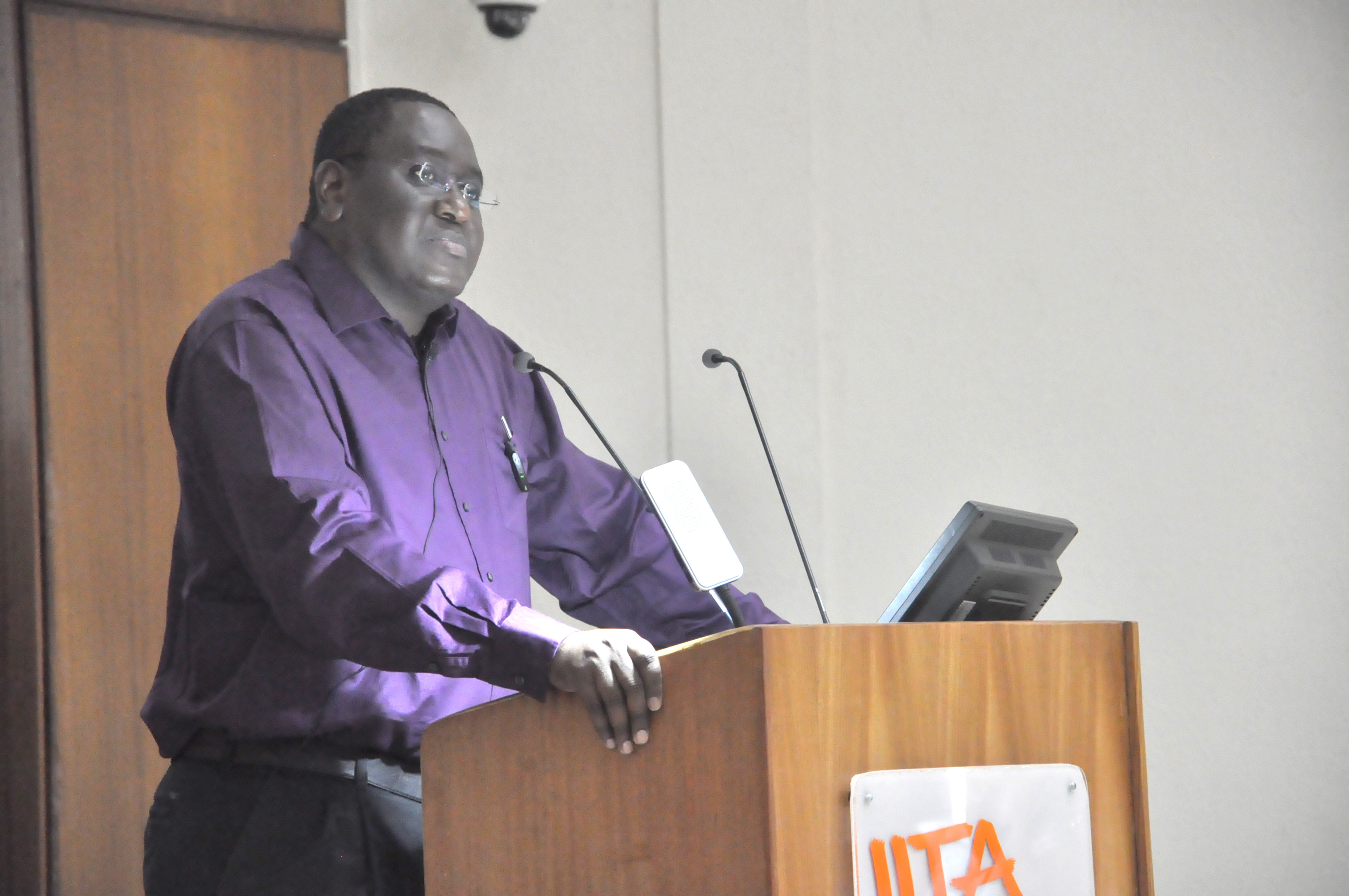A perception study on improved technologies being promoted by the Integrated Striga Management in Africa (ISMA) project shows that farmers in targeted communities where the project is being implemented are satisfied with the performance of the technologies. Many have adopted improved management practices to combat Striga.
Striga—otherwise known as witch weed remains a menace on cereals and legumes farms. The reduction to crop yields is estimated at costing $1.2bn in sub-Saharan Africa. ISMA Project, which is being implemented by IITA in partnership with CIMMYT, icipe, BASF Crop Chemical, AATF and national partners in Kenya and Nigeria is advocating improved technologies including better management practices to curtail the devastation on farms.
Such technologies include the following: cultural practices such as intercropping maize with legumes (soybean and groundnut); crop rotation of maize with soybean; a “push-pull” technology that involves intercropping cereals with Striga-suppressing Desmodium forage legume; using Striga-resistant varieties of maize and cowpea; using maize varieties resistant to Imazapyr (IR)—a BASF herbicide (StrigAway®) and Metsulfuron Methyl (MSM) – a Dupont herbicide which are coated on the maize seeds and which kills the Striga; and the adoption of biocontrol technologies which uses a Striga host-specific fungal pathogen (Fusarium oxysporum).
Dr Mel Oluoch, ISMA Project Manager, during his contract review gave a snapshot of results from the intervention with the majority of the farmers (about 75 percent) in project intervention areas in Bauchi State of Northern Nigeria rating varieties being disseminated by the project as “very good” in terms of purity, germination and Striga resistance.
The implementation of the project in Nigeria has also increased the farmers’ knowledge of how to better control Striga, the study revealed. But even more importantly, after three years of project implementation, the project has a positive impact on the lives of farmers in the target communities with very high adoption of some of the technologies being disseminated. Despite the successes being recorded, Dr Oluoch noted that more still needed to be done to amplify the benefits of the project.


No Comments